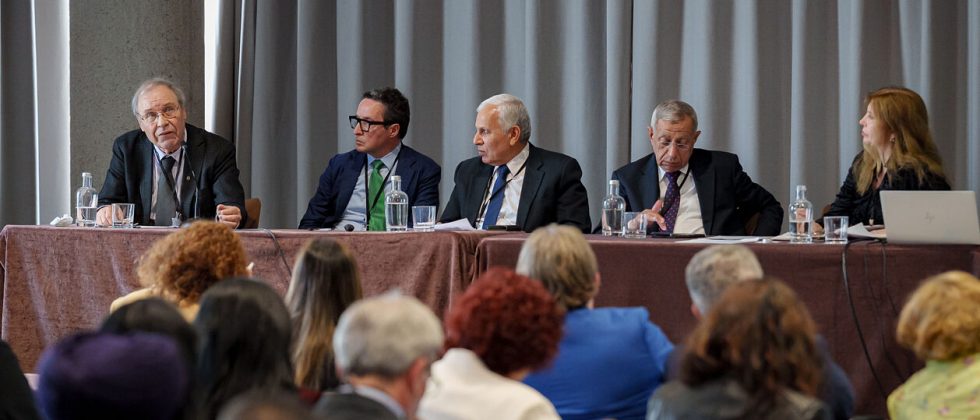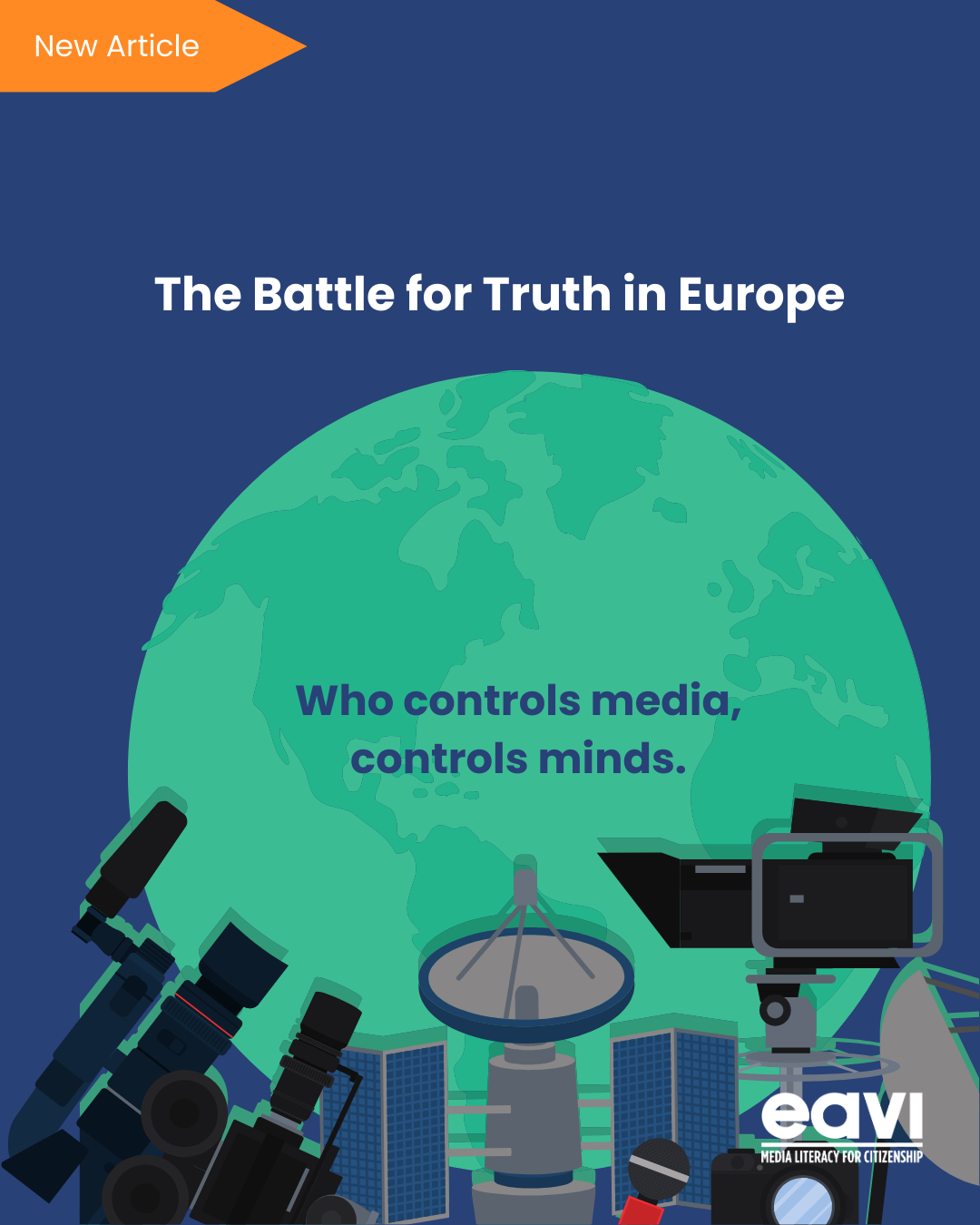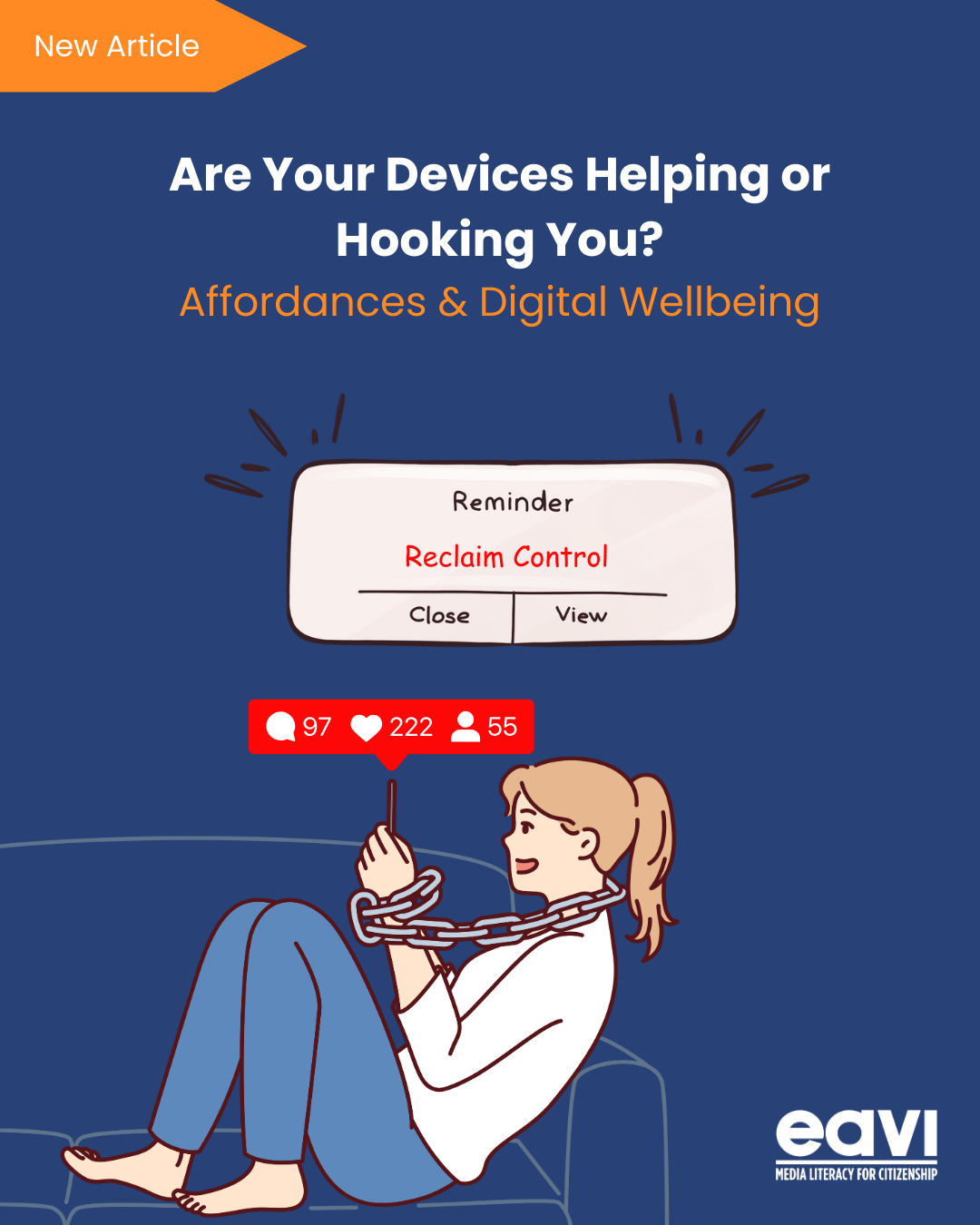
“Peace in the Minds” and Media Now – Speech by Tapio Varis, President of EAVI’s Advisory Board at MIL and Global Understanding Conference 2025 in Barcelona.
The first Director-General, Sir Julian Huxley, was asked in 1947 by young diplomats in Paris, “What does UNESCO do?” The short answer was, “It strives for peace.” (Alfredo Picasso de Oyague, International Congress on Peace in the Minds of Men, Yamoussoukro 1989, Ivory Coast). It is true that the 1945 Constitution of UNESCO explains the purpose of the organization as follows:
“Collaborate in the work of advancing the mutual knowledge and understanding of peoples, through all means of mass communication and to that end recommend such international agreements as may be necessary to promote the free flow of ideas by word and image.”
Even though Professor Herbert Schiller already documented in 1969 in his work Mass Communications and American Empire that electronic communications provide an indispensable element in America’s expanding influence in global affairs through the “free flow” doctrine, it is worthwhile to defend the constitutional idealism.
U.S. Vice President J.D. Vance warned European allies attending the Security Conference in Munich in 2025 against “the threat from within,” arguing that European governments are exercising extreme censorship and have failed to adequately handle “out-of-control migration.”
“The threat that I worry the most about vis-à-vis Europe is not Russia, it’s not China, it’s not any other external actor,” he said Friday. “What I worry about is the threat from within—the retreat of Europe from some of its most fundamental values, values shared with the United States of America.”
Now in 2025, the international information space is dominated primarily by American, Russian, Chinese, and European actions. The rest of the world remains largely unrepresented, even though there is considerable activity within the BRICS and Non-Aligned Movements, for example.
While there are some changes in American media, European media largely continues to echo a militaristic tone. Euronews, for example, is said to stream a hardline “peace through strength” message and promote rearmament—concepts closely related to peace through war. Quite a shift from when disarmament and even détente were European goals. The new American approach has been called “peace through realism.”
This reminds me of Winston Churchill’s attitude in his 1930s “Disarmament Fable,” where animals tried to achieve disarmament:
The Rhinoceros opened the proceedings by saying that the use of teeth was barbarous and horrible and ought to be strictly prohibited by general consent. Horns, which were mainly defensive weapons, would, of course, have to be allowed. The Lion and the Tiger took a different view.
What about a “Rearmament Fable” for 2025? Imagine animals using all banned chemicals to dope themselves for aggressive performance, and even resurrecting ancient dinosaurs through modern biolaboratory technology. Would that be preferable to disarmament?
Idealist internationalism is now confronted with realistic pragmatism, even in the media with the hardline slogan: “If you want peace, prepare for war.”
Some of us still want to believe in UNESCO’s idealism and the University for Peace’s slogan: “If you want peace, prepare for peace.”
Traditional diplomacy had already begun transforming into tele-diplomacy decades ago, and political leaders have become media actors. While media have professional rules of accountability, when they become active participants in political processes rather than mere observers, their ownership structures can introduce bias. Unlike politicians, media owners are not elected by the people.
GENERAL TREND
- The role of traditional mainstream media is weakening everywhere. Trust and truth are increasingly questioned. As they face economic challenges, mainstream outlets are reducing foreign correspondents and critical reporting. While reliable international comparative research is lacking, one can observe a shift toward blog and podcast-style media.
- The roles of different media were analyzed in discussions about fake news and democracy. In the Western journalistic tradition, mainstream media are seen as the Fourth Estate, expected to be run by trained reporters, editors, and publishers. Alternative media are meant to “watch the watchers” by critically monitoring traditional media. Social media, emerging from internet platforms, is now where every user is simultaneously reporter, editor, and publisher.
The old problem of cognitive dissonance when users are confronted with information that contradicts their existing beliefs re-emerges alongside confirmation bias. This is especially evident with internet users clustering with like-minded individuals.
A striking example of the growing influence of blogs and podcasts in world politics is the recent YouTube broadcasts by Judge Andrew Napolitano:
March 12, 2025, 09:00
Foreign Minister Sergey Lavrov’s interview with U.S. bloggers Mario Nawfal, Larry C. Johnson, and Andrew Napolitano, Moscow, March 12, 2025
The streams on “Judging Freedom” included other interviews normally excluded by Western media.
In today’s American-dominated world news media, it was significant and impressive that Tucker Carlson conducted a historic interview with Vladimir Putin on February 6, 2024. The interview has been widely discussed across media outlets. One particular detail is very interesting, in a short period Carlson asked Putin, “who blew up the Nord Stream pipelines?”
TC: “The biggest act of industrial terrorism ever. Why do you not present and win a propaganda victory?”
Putin: “In the world of propaganda, it is very difficult to defeat the United States because the United States controls all the world’s media and many European media. The ultimate beneficiaries of the biggest European media are American financial institutions.”
In this context, it’s worth noting that Russia’s foreign propaganda agency, RT, is completely banned in Western countries.
With reference to Harold Lasswell’s 1948 model of communication, which asks: Who? Says what? In which channel? To whom? With what effect? — we could now add: When?
Speed and timing have become more critical than ever.
PEACE?
In 2023, UNESCO adopted the Revised Recommendation Concerning Education for International Understanding, Cooperation and Peace, and Education Relating to Human Rights and Fundamental Freedoms, which aims to promote:
Media and information literacy, communication, and digital skills: the ability to effectively search, access, critically evaluate, ethically produce, use, and disseminate information and knowledge through various channels and technologies. It also includes the ability to be resilient, detect and combat disinformation and misinformation, hate speech, all forms of violence (including gender-based violence), harmful content, and online abuse and exploitation. It involves understanding one’s rights and responsibilities both online and offline, and engaging in digital environments in a safe, effective, discerning, and respectful manner that enhances digital security and protects privacy.
Read More
https://www.youtube.com/channel/UCDkEYb-TXJVWLvOokshtlsw
https://en.wikipedia.org/wiki/RT_(TV_network)
UNESCO General Conference 42 C, 42nd Session, Paris, 2023

“Peace in the Minds” and Media Now – Speech by Tapio Varis, President of EAVI’s Advisory Board at MIL and Global Understanding Conference 2025 in Barcelona.
The first Director-General, Sir Julian Huxley, was asked in 1947 by young diplomats in Paris, “What does UNESCO do?” The short answer was, “It strives for peace.” (Alfredo Picasso de Oyague, International Congress on Peace in the Minds of Men, Yamoussoukro 1989, Ivory Coast). It is true that the 1945 Constitution of UNESCO explains the purpose of the organization as follows:
“Collaborate in the work of advancing the mutual knowledge and understanding of peoples, through all means of mass communication and to that end recommend such international agreements as may be necessary to promote the free flow of ideas by word and image.”
Even though Professor Herbert Schiller already documented in 1969 in his work Mass Communications and American Empire that electronic communications provide an indispensable element in America’s expanding influence in global affairs through the “free flow” doctrine, it is worthwhile to defend the constitutional idealism.
U.S. Vice President J.D. Vance warned European allies attending the Security Conference in Munich in 2025 against “the threat from within,” arguing that European governments are exercising extreme censorship and have failed to adequately handle “out-of-control migration.”
“The threat that I worry the most about vis-à-vis Europe is not Russia, it’s not China, it’s not any other external actor,” he said Friday. “What I worry about is the threat from within—the retreat of Europe from some of its most fundamental values, values shared with the United States of America.”
Now in 2025, the international information space is dominated primarily by American, Russian, Chinese, and European actions. The rest of the world remains largely unrepresented, even though there is considerable activity within the BRICS and Non-Aligned Movements, for example.
While there are some changes in American media, European media largely continues to echo a militaristic tone. Euronews, for example, is said to stream a hardline “peace through strength” message and promote rearmament—concepts closely related to peace through war. Quite a shift from when disarmament and even détente were European goals. The new American approach has been called “peace through realism.”
This reminds me of Winston Churchill’s attitude in his 1930s “Disarmament Fable,” where animals tried to achieve disarmament:
The Rhinoceros opened the proceedings by saying that the use of teeth was barbarous and horrible and ought to be strictly prohibited by general consent. Horns, which were mainly defensive weapons, would, of course, have to be allowed. The Lion and the Tiger took a different view.
What about a “Rearmament Fable” for 2025? Imagine animals using all banned chemicals to dope themselves for aggressive performance, and even resurrecting ancient dinosaurs through modern biolaboratory technology. Would that be preferable to disarmament?
Idealist internationalism is now confronted with realistic pragmatism, even in the media with the hardline slogan: “If you want peace, prepare for war.”
Some of us still want to believe in UNESCO’s idealism and the University for Peace’s slogan: “If you want peace, prepare for peace.”
Traditional diplomacy had already begun transforming into tele-diplomacy decades ago, and political leaders have become media actors. While media have professional rules of accountability, when they become active participants in political processes rather than mere observers, their ownership structures can introduce bias. Unlike politicians, media owners are not elected by the people.
GENERAL TREND
- The role of traditional mainstream media is weakening everywhere. Trust and truth are increasingly questioned. As they face economic challenges, mainstream outlets are reducing foreign correspondents and critical reporting. While reliable international comparative research is lacking, one can observe a shift toward blog and podcast-style media.
- The roles of different media were analyzed in discussions about fake news and democracy. In the Western journalistic tradition, mainstream media are seen as the Fourth Estate, expected to be run by trained reporters, editors, and publishers. Alternative media are meant to “watch the watchers” by critically monitoring traditional media. Social media, emerging from internet platforms, is now where every user is simultaneously reporter, editor, and publisher.
The old problem of cognitive dissonance when users are confronted with information that contradicts their existing beliefs re-emerges alongside confirmation bias. This is especially evident with internet users clustering with like-minded individuals.
A striking example of the growing influence of blogs and podcasts in world politics is the recent YouTube broadcasts by Judge Andrew Napolitano:
March 12, 2025, 09:00
Foreign Minister Sergey Lavrov’s interview with U.S. bloggers Mario Nawfal, Larry C. Johnson, and Andrew Napolitano, Moscow, March 12, 2025
The streams on “Judging Freedom” included other interviews normally excluded by Western media.
In today’s American-dominated world news media, it was significant and impressive that Tucker Carlson conducted a historic interview with Vladimir Putin on February 6, 2024. The interview has been widely discussed across media outlets. One particular detail is very interesting, in a short period Carlson asked Putin, “who blew up the Nord Stream pipelines?”
TC: “The biggest act of industrial terrorism ever. Why do you not present and win a propaganda victory?”
Putin: “In the world of propaganda, it is very difficult to defeat the United States because the United States controls all the world’s media and many European media. The ultimate beneficiaries of the biggest European media are American financial institutions.”
In this context, it’s worth noting that Russia’s foreign propaganda agency, RT, is completely banned in Western countries.
With reference to Harold Lasswell’s 1948 model of communication, which asks: Who? Says what? In which channel? To whom? With what effect? — we could now add: When?
Speed and timing have become more critical than ever.
PEACE?
In 2023, UNESCO adopted the Revised Recommendation Concerning Education for International Understanding, Cooperation and Peace, and Education Relating to Human Rights and Fundamental Freedoms, which aims to promote:
Media and information literacy, communication, and digital skills: the ability to effectively search, access, critically evaluate, ethically produce, use, and disseminate information and knowledge through various channels and technologies. It also includes the ability to be resilient, detect and combat disinformation and misinformation, hate speech, all forms of violence (including gender-based violence), harmful content, and online abuse and exploitation. It involves understanding one’s rights and responsibilities both online and offline, and engaging in digital environments in a safe, effective, discerning, and respectful manner that enhances digital security and protects privacy.
Read More
https://www.youtube.com/channel/UCDkEYb-TXJVWLvOokshtlsw
https://en.wikipedia.org/wiki/RT_(TV_network)
UNESCO General Conference 42 C, 42nd Session, Paris, 2023

“Peace in the Minds” and Media Now – Speech by Tapio Varis, President of EAVI’s Advisory Board at MIL and Global Understanding Conference 2025 in Barcelona.
The first Director-General, Sir Julian Huxley, was asked in 1947 by young diplomats in Paris, “What does UNESCO do?” The short answer was, “It strives for peace.” (Alfredo Picasso de Oyague, International Congress on Peace in the Minds of Men, Yamoussoukro 1989, Ivory Coast). It is true that the 1945 Constitution of UNESCO explains the purpose of the organization as follows:
“Collaborate in the work of advancing the mutual knowledge and understanding of peoples, through all means of mass communication and to that end recommend such international agreements as may be necessary to promote the free flow of ideas by word and image.”
Even though Professor Herbert Schiller already documented in 1969 in his work Mass Communications and American Empire that electronic communications provide an indispensable element in America’s expanding influence in global affairs through the “free flow” doctrine, it is worthwhile to defend the constitutional idealism.
U.S. Vice President J.D. Vance warned European allies attending the Security Conference in Munich in 2025 against “the threat from within,” arguing that European governments are exercising extreme censorship and have failed to adequately handle “out-of-control migration.”
“The threat that I worry the most about vis-à-vis Europe is not Russia, it’s not China, it’s not any other external actor,” he said Friday. “What I worry about is the threat from within—the retreat of Europe from some of its most fundamental values, values shared with the United States of America.”
Now in 2025, the international information space is dominated primarily by American, Russian, Chinese, and European actions. The rest of the world remains largely unrepresented, even though there is considerable activity within the BRICS and Non-Aligned Movements, for example.
While there are some changes in American media, European media largely continues to echo a militaristic tone. Euronews, for example, is said to stream a hardline “peace through strength” message and promote rearmament—concepts closely related to peace through war. Quite a shift from when disarmament and even détente were European goals. The new American approach has been called “peace through realism.”
This reminds me of Winston Churchill’s attitude in his 1930s “Disarmament Fable,” where animals tried to achieve disarmament:
The Rhinoceros opened the proceedings by saying that the use of teeth was barbarous and horrible and ought to be strictly prohibited by general consent. Horns, which were mainly defensive weapons, would, of course, have to be allowed. The Lion and the Tiger took a different view.
What about a “Rearmament Fable” for 2025? Imagine animals using all banned chemicals to dope themselves for aggressive performance, and even resurrecting ancient dinosaurs through modern biolaboratory technology. Would that be preferable to disarmament?
Idealist internationalism is now confronted with realistic pragmatism, even in the media with the hardline slogan: “If you want peace, prepare for war.”
Some of us still want to believe in UNESCO’s idealism and the University for Peace’s slogan: “If you want peace, prepare for peace.”
Traditional diplomacy had already begun transforming into tele-diplomacy decades ago, and political leaders have become media actors. While media have professional rules of accountability, when they become active participants in political processes rather than mere observers, their ownership structures can introduce bias. Unlike politicians, media owners are not elected by the people.
GENERAL TREND
- The role of traditional mainstream media is weakening everywhere. Trust and truth are increasingly questioned. As they face economic challenges, mainstream outlets are reducing foreign correspondents and critical reporting. While reliable international comparative research is lacking, one can observe a shift toward blog and podcast-style media.
- The roles of different media were analyzed in discussions about fake news and democracy. In the Western journalistic tradition, mainstream media are seen as the Fourth Estate, expected to be run by trained reporters, editors, and publishers. Alternative media are meant to “watch the watchers” by critically monitoring traditional media. Social media, emerging from internet platforms, is now where every user is simultaneously reporter, editor, and publisher.
The old problem of cognitive dissonance when users are confronted with information that contradicts their existing beliefs re-emerges alongside confirmation bias. This is especially evident with internet users clustering with like-minded individuals.
A striking example of the growing influence of blogs and podcasts in world politics is the recent YouTube broadcasts by Judge Andrew Napolitano:
March 12, 2025, 09:00
Foreign Minister Sergey Lavrov’s interview with U.S. bloggers Mario Nawfal, Larry C. Johnson, and Andrew Napolitano, Moscow, March 12, 2025
The streams on “Judging Freedom” included other interviews normally excluded by Western media.
In today’s American-dominated world news media, it was significant and impressive that Tucker Carlson conducted a historic interview with Vladimir Putin on February 6, 2024. The interview has been widely discussed across media outlets. One particular detail is very interesting, in a short period Carlson asked Putin, “who blew up the Nord Stream pipelines?”
TC: “The biggest act of industrial terrorism ever. Why do you not present and win a propaganda victory?”
Putin: “In the world of propaganda, it is very difficult to defeat the United States because the United States controls all the world’s media and many European media. The ultimate beneficiaries of the biggest European media are American financial institutions.”
In this context, it’s worth noting that Russia’s foreign propaganda agency, RT, is completely banned in Western countries.
With reference to Harold Lasswell’s 1948 model of communication, which asks: Who? Says what? In which channel? To whom? With what effect? — we could now add: When?
Speed and timing have become more critical than ever.
PEACE?
In 2023, UNESCO adopted the Revised Recommendation Concerning Education for International Understanding, Cooperation and Peace, and Education Relating to Human Rights and Fundamental Freedoms, which aims to promote:
Media and information literacy, communication, and digital skills: the ability to effectively search, access, critically evaluate, ethically produce, use, and disseminate information and knowledge through various channels and technologies. It also includes the ability to be resilient, detect and combat disinformation and misinformation, hate speech, all forms of violence (including gender-based violence), harmful content, and online abuse and exploitation. It involves understanding one’s rights and responsibilities both online and offline, and engaging in digital environments in a safe, effective, discerning, and respectful manner that enhances digital security and protects privacy.
Read More
https://www.youtube.com/channel/UCDkEYb-TXJVWLvOokshtlsw
https://en.wikipedia.org/wiki/RT_(TV_network)
UNESCO General Conference 42 C, 42nd Session, Paris, 2023








































































































































































